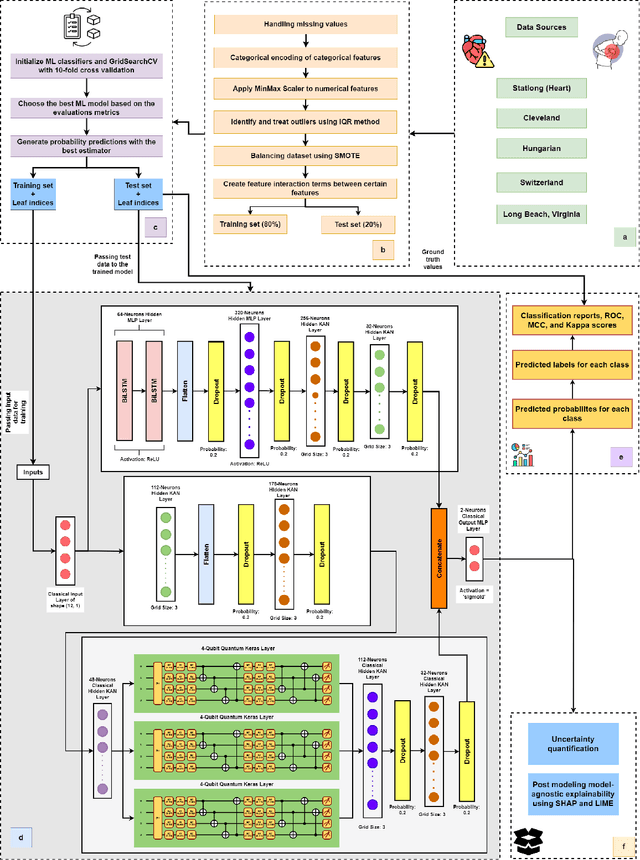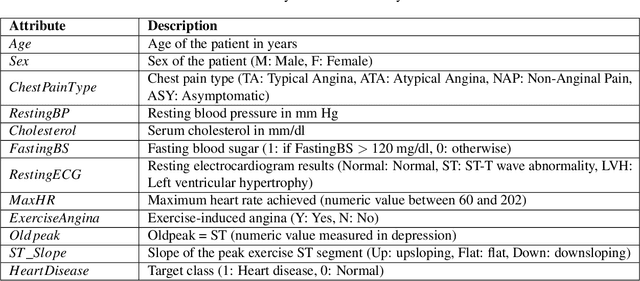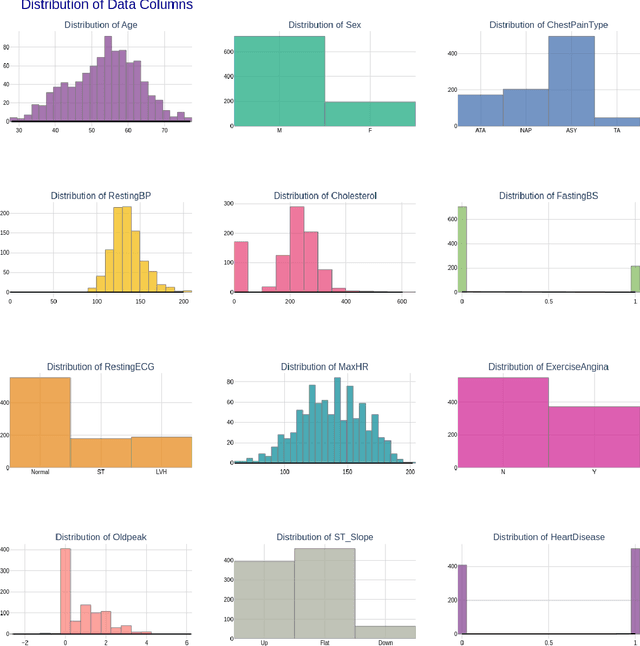KACQ-DCNN: Uncertainty-Aware Interpretable Kolmogorov-Arnold Classical-Quantum Dual-Channel Neural Network for Heart Disease Detection
Paper and Code
Oct 09, 2024



Heart failure remains a major global health challenge, contributing significantly to the 17.8 million annual deaths from cardiovascular disease, highlighting the need for improved diagnostic tools. Current heart disease prediction models based on classical machine learning face limitations, including poor handling of high-dimensional, imbalanced data, limited performance on small datasets, and a lack of uncertainty quantification, while also being difficult for healthcare professionals to interpret. To address these issues, we introduce KACQ-DCNN, a novel classical-quantum hybrid dual-channel neural network that replaces traditional multilayer perceptrons and convolutional layers with Kolmogorov-Arnold Networks (KANs). This approach enhances function approximation with learnable univariate activation functions, reducing model complexity and improving generalization. The KACQ-DCNN 4-qubit 1-layered model significantly outperforms 37 benchmark models across multiple metrics, achieving an accuracy of 92.03%, a macro-average precision, recall, and F1 score of 92.00%, and an ROC-AUC score of 94.77%. Ablation studies demonstrate the synergistic benefits of combining classical and quantum components with KAN. Additionally, explainability techniques like LIME and SHAP provide feature-level insights, improving model transparency, while uncertainty quantification via conformal prediction ensures robust probability estimates. These results suggest that KACQ-DCNN offers a promising path toward more accurate, interpretable, and reliable heart disease predictions, paving the way for advancements in cardiovascular healthcare.
 Add to Chrome
Add to Chrome Add to Firefox
Add to Firefox Add to Edge
Add to Edge